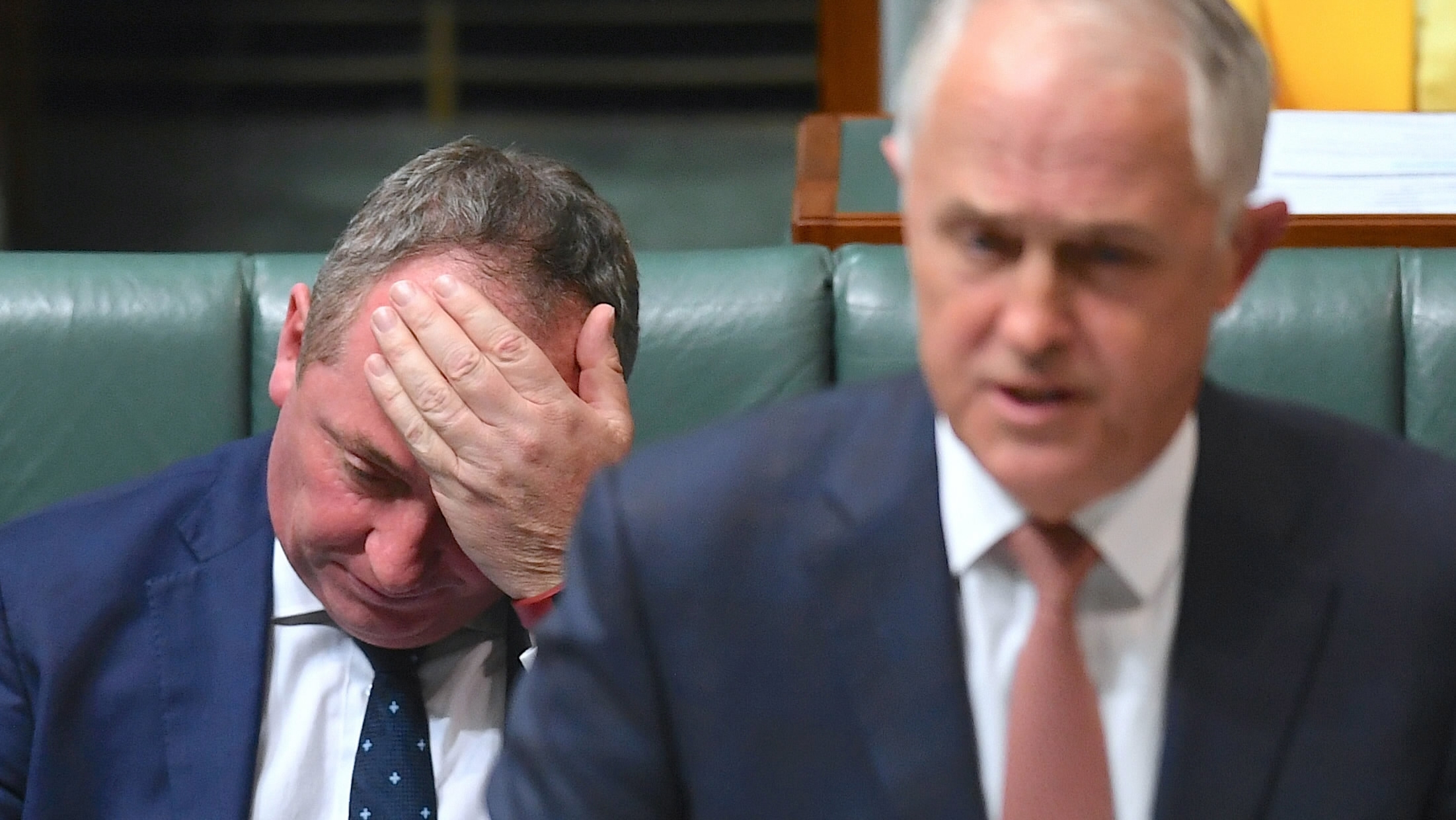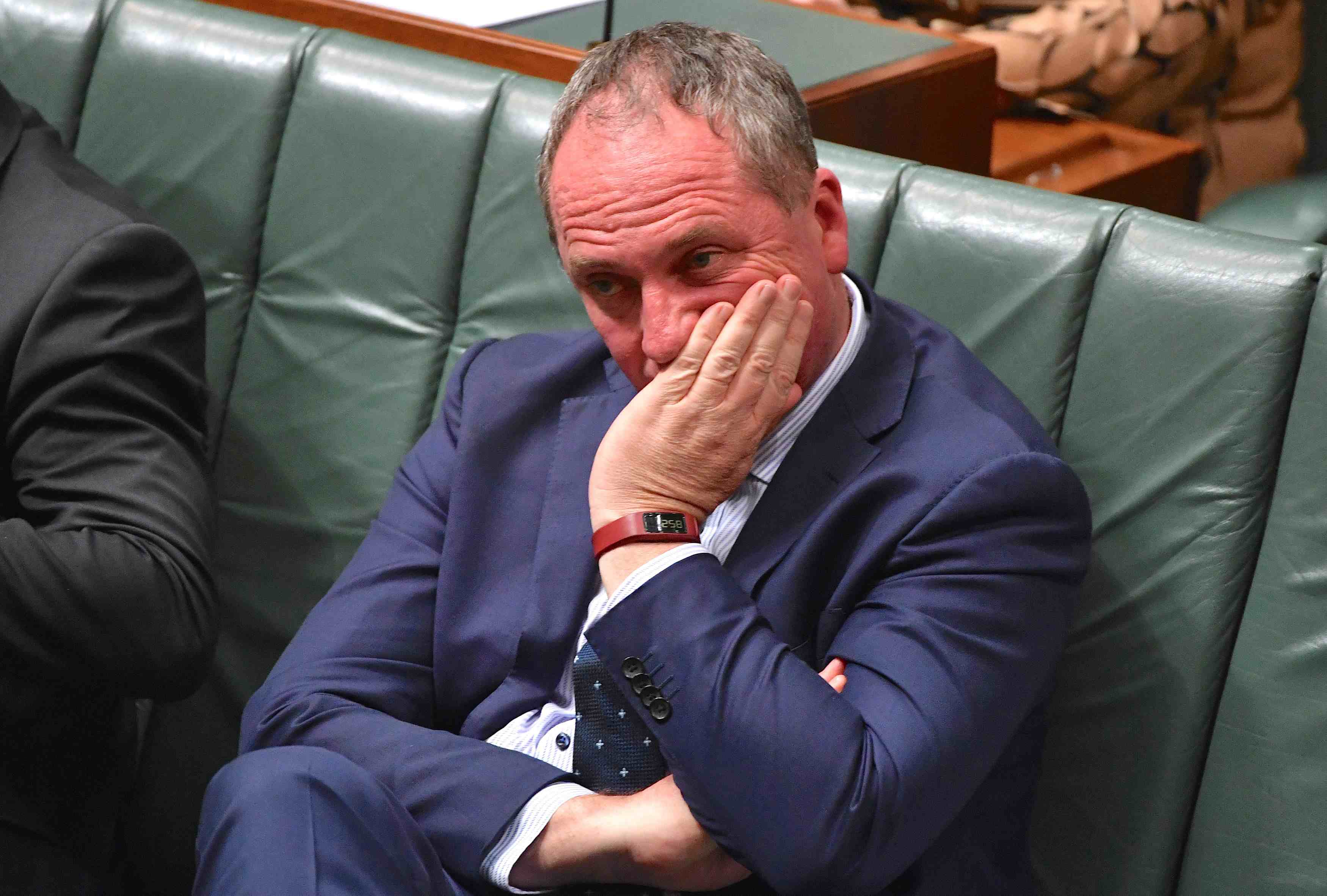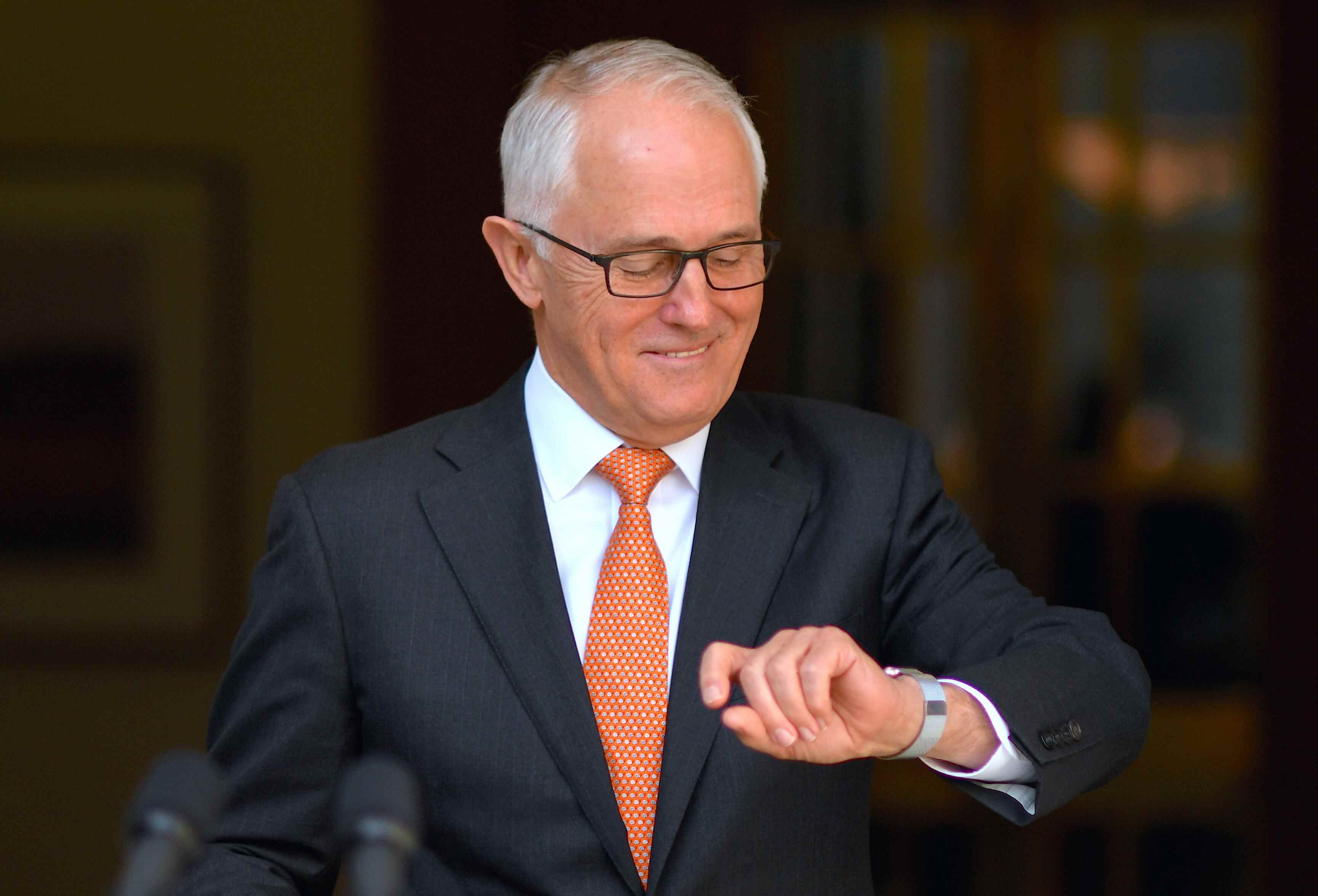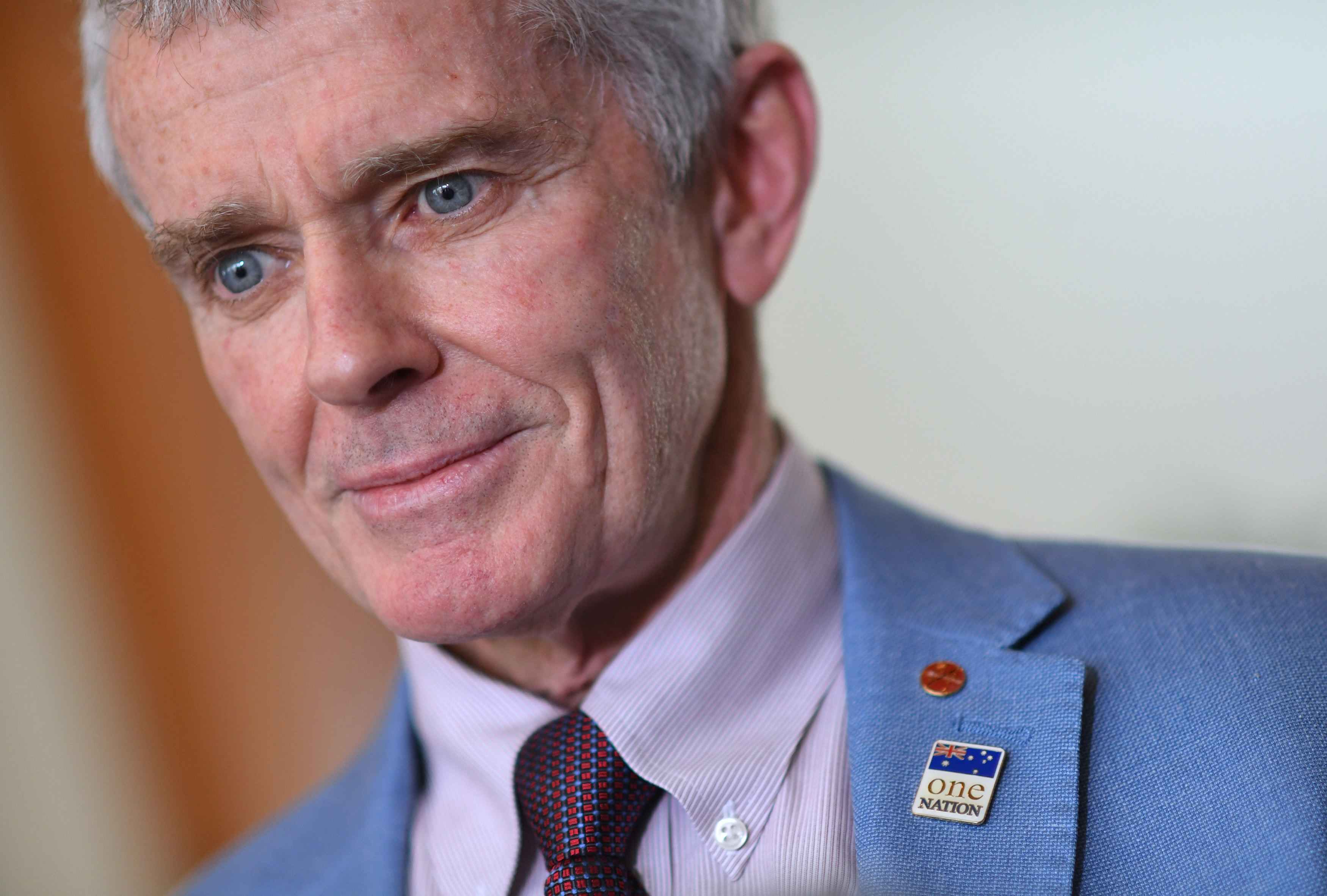
Politics
11:22, 27-Oct-2017
Australia's 'Citizenship Seven' saga ended as deputy PM disqualified
By Nadeem Gill

The High Court of Australia has unseated Deputy PM Barnaby Joyce and four other politicians over dual citizenship on Friday.
Prime Minister Malcolm Turnbull, who had a 76-seat majority in the 150-member House of Representatives, has now lost his one-seat majority after Joyce being declared disqualified.
It is expected that the deputy PM seat to be kept vacant ahead of the by-election, slated for early December, according to local media.
Foreign Minister Julie Bishop is tipped to take on the duties if Turnbull travels overseas.
"Citizenship Seven"
The other six politicians who faced the saga included Fiona Nash, Matt Canavan, Malcolm Roberts, Nick Xenophon, Larissa Waters and Scott Ludlam.

Australian Deputy Prime Minister Barnaby Joyce reacts as he sits in the House of Representatives at Parliament House in Canberra, Australia, October 25, 2017. /Reuters Photo
Australian Deputy Prime Minister Barnaby Joyce reacts as he sits in the House of Representatives at Parliament House in Canberra, Australia, October 25, 2017. /Reuters Photo
Roberts (One Nation), Waters (Greens), Nash (Nationals), and Ludlam (Greens) have been ruled ineligible.
Waters and Ludlam have resigned and Xenophon announced the intention of leaving politics before the court ruling.
Joyce was the only lower house politician to be considered, the others were all Senators.
Confusion erupted in July whether dual citizens could stand for office.
MPs were forced to clarify their status publicly and seven politicians, dubbed as "Citizenship Seven" by the local media, were found to be dual citizens – a status that restricts them from holding elected office under the Australia’s constitution.
By-election
Joyce is not prevented from running the by-election on December 2 in New England in New South Wales State where he is quite popular as a local member.
His popularity is reported to be at about 55 to 60 percent.
"There is every likelihood he will be returned to his seat," Melbourne based current affairs commentator Andrew Rabel told CGTN Digital.
If he loses the by-poll, the coalition could keep ruling as a minority government if it receives the support of independent MPs on budget matters and on votes of no confidence, AFP reported.
No worries

Australia's Prime Minister Malcolm Turnbull looks at his watch during a media conference at Parliament House in Canberra, Australia, October 27, 2017. /Reuters Photo
Australia's Prime Minister Malcolm Turnbull looks at his watch during a media conference at Parliament House in Canberra, Australia, October 27, 2017. /Reuters Photo
Joyce, the leader of the rural-based National Party who renounced New Zealand citizenship in August, has said he would re-contest his lower house seat in a by-election.
Addressing a news conference immediately after the ruling, Joyce said he accepts the verdict, adding that he is not "so surprised at decision," as he was "always prepared for this outcome".
"I had no reason to believe that, you know, I was a citizen of any other country than Australia. That is the way it is... Now I am going to make sure that I don't cry in my beer."
But prime minister Turnbull echoed opposite views, saying, "the decision of the court today is clearly not the outcome we were hoping for but the business of government goes on."
Rabel said Joyce "was very gracious in its acceptance of the decision and applauding Australia's political system."
Independent MP Cathy McGowan issued a statement offering continued support to the government.
The turmoil
The verdict also left conservative-leaning Australians feeling despair, said Rabel.
"In a way, it seems unfair, because he (Joyce) was born in Australia. But had a New Zealand parent, and the judges have made a judgment that he did not take reasonable steps to remove his citizenship," he said.

Former One Nation Senator Malcolm Roberts reacts during a media conference at Parliament House in Canberra, Australia, October 27, 2017. /Reuters Photo
Former One Nation Senator Malcolm Roberts reacts during a media conference at Parliament House in Canberra, Australia, October 27, 2017. /Reuters Photo
"The problem is that the background to this is section 44 of the Australian Constitution, which prevents any dual citizenship. So this law can only be changed via a referendum. It is tough to change the constitution, the last time this happened was in 1977," Rabel explained.
But most of the country is relieved, Rabel said, adding that the matter has finally been resolved.
"We have found it an unwelcome distraction, and amazed at the incompetence of our elected people," he stated.
The situation, however, "could get sticky for the government over the next month. There are several sittings of the parliament in November, and it may be the Speaker has the casting vote. But if he does not want to ally himself with the government, an implausible scenario, then we might have a problem or two," he said.
(With input from news agencies)

SITEMAP
Copyright © 2018 CGTN. Beijing ICP prepared NO.16065310-3
Copyright © 2018 CGTN. Beijing ICP prepared NO.16065310-3